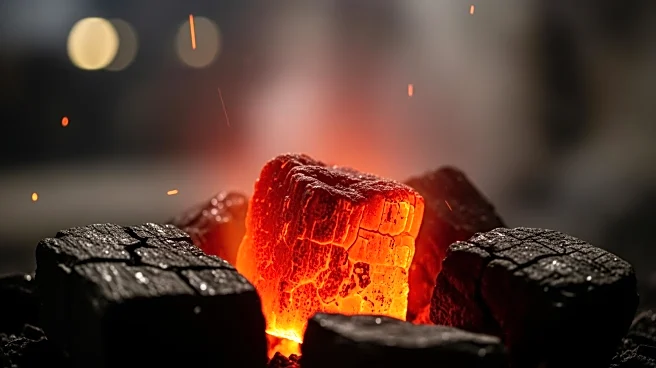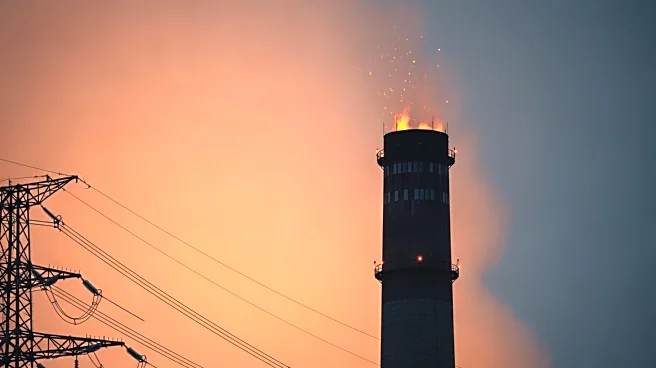What's Happening?
Arup, an environmental consultancy, has been appointed by Peak Cluster to lead the environmental impact assessment (EIA) and prepare the technical documentation for the development consent order (DCO) for the Peak Cluster project in the UK. This project aims to address the significant CO2 emissions from cement and lime production in Derbyshire and Staffordshire, which account for 40% of the UK's output in these sectors. The project involves developing carbon capture facilities at plants operated by Tarmac, Buxton Lime, Breedon, and Holcim. The captured CO2 will be transported via a proposed underground pipeline to Spirit Energy's Morecambe Net Zero site for permanent storage. Arup, supported by AECOM and Quod, will oversee the EIA and DCO, ensuring the project's environmental effects are thoroughly assessed.
Why It's Important?
The Peak Cluster project represents a significant step towards reducing carbon emissions in the UK's cement and lime industries, which are major contributors to the country's overall CO2 output. By capturing and storing CO2, the project aims to secure a sustainable future for these industries, preserving over 2000 jobs and supporting the production of low-carbon products. This initiative is also expected to enhance the UK's supply chain and skills base, attract private investment, and position the country as a leader in the global low-carbon technology sector. The project's success could serve as a blueprint for similar developments across Europe and beyond, highlighting its potential impact on international efforts to combat climate change.
What's Next?
The next steps for the Peak Cluster project involve completing the environmental impact assessment and securing the development consent order. These processes will include detailed evaluations of the environmental effects during construction and operation, as well as the integration with Spirit Energy's offshore CO2 storage infrastructure. As the project progresses, it will likely attract attention from policymakers, industry leaders, and environmental groups, who may influence its development and implementation. The successful execution of this project could lead to further investments in carbon capture technology and infrastructure, both in the UK and internationally.
Beyond the Headlines
The Peak Cluster project not only addresses environmental concerns but also has significant economic and social implications. By investing in carbon capture technology, the UK is taking a proactive approach to climate change, which could inspire other countries to follow suit. Additionally, the project highlights the importance of collaboration between government, industry, and environmental organizations in achieving sustainable development goals. The initiative also underscores the potential for technological innovation to drive economic growth and job creation in the context of a low-carbon future.








